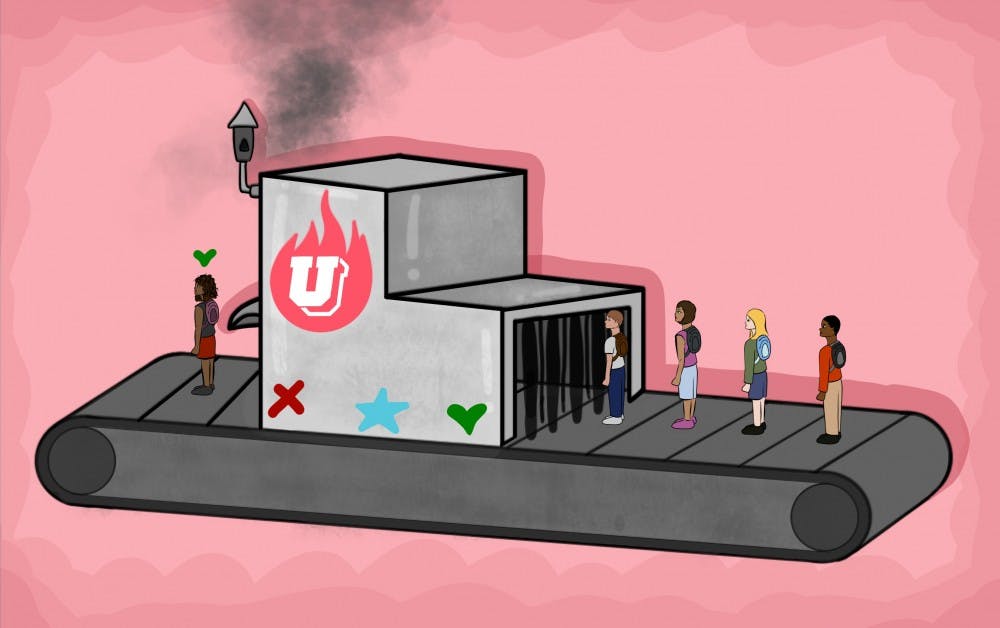Tinder has taken college match-making to another level.
With its rollout of Tinder U, the app has students intrigued towards the possibilities of what a college-exclusive dating pool could bring to ASU.
According to the company’s announcement made last month, this new extension to the popular dating app is intended to connect students from the same or nearby four-year universities.
The new feature intends to facilitate connections with fellow students, whether that be finding a Noble study date, discovering team members for ASU intramurals or meeting someone to sip some coffee with at the Memorial Union Starbucks.
To sign up for Tinder U, students must be on campus, logged into Tinder and signed into their student email address. After an email verification process, students are accepted to Tinder U and can begin swiping.
Selena Quiroz, a masters student studying psychology who is doing her thesis on social media and romantic relationships, said Tinder U can help with issues of feeling unsafe and not knowing who’s on the other line.
“The fact that (students) have to put their school email could help with the meeting of urban catfishers and the feeling of safety when meeting up with people,” Quiroz said.
Quiroz said about half of dating app users never meet people they meet online, adding that users have a wide array of intentions, whether it be for entertainment or other reasons.
“This way they would actually meet people," Quiroz said. "They know they’re close, go to their school and have gone through a verification process."
Tinder U is taking a step in the direction that most college kids took before the feature was available, according to Brittany Ater, an ASU alumna who completed her honors thesis on Snapchat and romantic breakup distress and a freshman admission specialist at the University.
“When I did have a Tinder, I would scroll past people if they didn’t have ASU listed (under job or education)," Ater said. "That’s a thing I would swipe left on. For convenience, I want someone I can go out with regularly and that I can see, and knowing that person is getting a college education is important to me.”
Ater said she feels as if Tinder U could work better than regular Tinder for college students.
“It seems more intentional than Tinder as a whole, which seems more like a catch-all within a certain mileage," Ater said.
According to Hannah Staal, a sophomore majoring in marketing and finance, Tinder U ad images are relatable and marketable to the college age demographic and include bright colors, young, smiley individuals and varsity/letterman motifs.
In addition, Staal said that the app can be more appealing because of the close range of users.
"Most people want to be with someone who is similar to their age or geographically where they are,” Staal said.
But does sharing a mascot guarantee an instant connection? Quiroz said not necessarily.
“It goes back to the reason why they’re on Tinder in the first place,” Quiroz said. “Even though you’re meeting people your age that go to your school, if you have mismatched intentions, nothing beneficial will come out of it for the two people involved.”
Quiroz suggests students add in their bio what they're looking for, whether that be a friend, a date or a study partner, etc.
“Being more open and direct about it would bring more success," Quiroz said.
Ater said some might think college students don't need apps to meet others.
“You’re in the biggest dating cesspool of your life," Ater said. "But especially at somewhere like ASU, especially at the Tempe campus where there is 50,000 people, (Tinder U) is another way to narrow that down.”
However, with the decreased number of people available in Tinder's new feature, there are concerns.
According to Quiroz and Ater, one drawback to the feature is if someone has a negative experience with another person through the app.
“It’s almost guaranteed that, with the narrowed pool, people will see friends or exes or people that they know," Ater said. "I’m curious to see if that increases and how that will affect people as well."
Quiroz also warned about the drawbacks of passively social media and dating apps by mindlessly swiping and not interacting with the content that people post.
“Passive social media use is actually what is linked to lesser well being (like depression and anxiety),” Quiroz said. “This feature might reduce the passive use just because … (the app is) promoting more active use and lessening effects on well being.”
Reach the reporter at mshrikan@asu.edu and follow @MayaShrikant on Twitter.
Like The State Press on Facebook and follow @statepress on Twitter.




